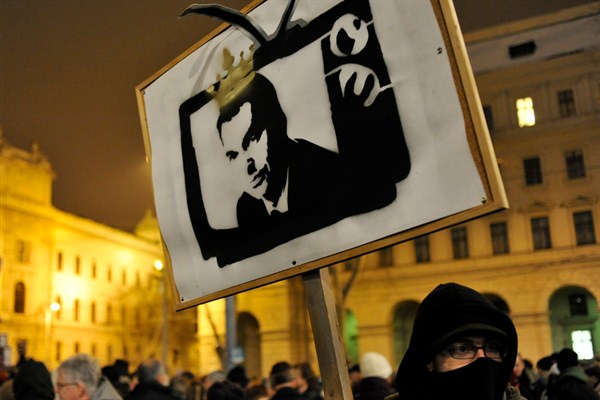For all the criticism leveled at him, Hungarian Prime Minister Viktor Orban is an innovative political leader. His illiberal model of governance is increasingly embraced on both sides of the Atlantic, and his unflinching focus on migration—years after the refugee crisis peaked in Europe—continues to pay him handsome dividends. He won a third supermajority in Hungary’s parliament earlier this year and is poised for a landslide victory in elections in the European Parliament next year.
Yet recent developments in Hungary’s media market, engineered by Orban’s government, seem anything but innovative. The creation of a pro-government media juggernaut at the end of November, after seemingly altruistic “donations” by several government-affiliated businessmen, harkens back to the communist era, when the party-state and media were fused, with the press serving up nothing but propaganda to further the regime’s goals.
The creation of the Central European Press and Media Foundation, or CEPMF, was announced on Nov. 28, a few hours after Lorinc Meszaros—a gasfitter turned businessman and a personal friend of Orban, whose wealth has increased 30-fold in the past few years—purchased four companies owning print and broadcast outlets, only to offer them to CEPMF the same afternoon for free. In addition to Meszaros, several other media owners offered to donate their companies to the newly created conglomerate, a nonprofit foundation run by three people close to the government.

